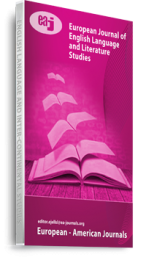This paper attempts to tackle the most important humanistic themes dealt with in Diana Abu-Jaber`s novel Crescent (2003). The novel explores universal human themes connected with exile and the quest for identity. The story of Crescent is the story of the whole Arab immigrants living in exile. The novel revolves around a multi-cultural love story between an Iraqi man expelled out of his country and an Iraqi immigrant chef named Sirine. Diana highlights in the novel the painful feelings of people who leave their countries and live in exile. In many places, she refers to the sufferings of immigrants and what may occur to them in the countries they settle in. She further laments the real loss of depressed and frustrated people who are forced to leave their homelands. The writer`s prime focus on the humanistic, innovative, and compassionate aspects of Arab and Muslim culture is a proactive denouncement against the stereotyping viewpoints by which the majority of American people perceive refugees from middle-eastern countries. This biased view permitted the US government to rule the country over several years of military conflicts, binding force, and unattained human rights in Iraq with hardly any popular resistance. The researcher employs a critical and analytical approach in discussing the themes of the novel. This paper reveals the aesthetic dimensions in the story as realistic, romantic, and symbolic trends and how the writer combines them successfully to enhance the theme of human interaction within different ethnic groups.
Keywords: Culture, Identity, Immigrants, Middle East, crescent, exile.

